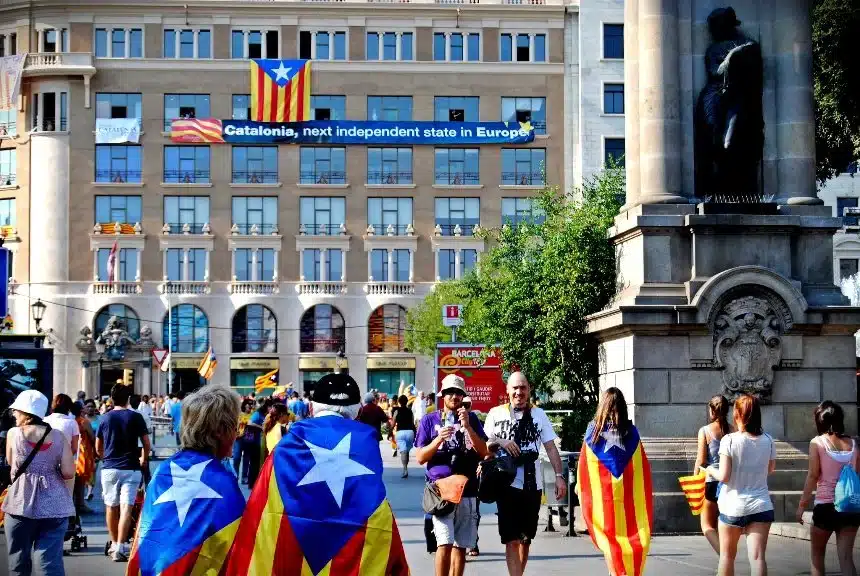In an era marked by uncertainty, the management of national diversity emerges as a crucial global challenge. Globalization, with its trends towards cultural uniformity and the atomization of individuals, presents risks for both minority nations and national minorities. These potentially devastating phenomena on cultural and identity levels demand increased vigilance and mobilization from these groups and national communities.
Canada, with its unique blend of founding nations, serves as a model for examining diversity management in a multinational context. Canadian experiences shed light on valuable lessons for other federal or federalizing states. Concurrently, Spain, with its tensions and possibilities in terms of recognizing and empowering national minorities, offers a significant contrast.
The Canadian model, along with the challenges observed in Spain, highlights the need for a more balanced and respectful approach to national minorities within federal democracies. Recognizing and empowering these groups remains essential to maintaining social and cultural cohesion in multinational contexts.
The Decline of International Attention to the Claims of National Minorities
The period between 1995 and 2005 marked a turning point in how international organizations approach the issues of minority nations and national minorities. During this decade, a notable shift occurred, moving from a focus on the collective claims of minorities to a focus on the protection of individual rights within these groups. This shift led to an underestimation of the importance of recognizing minorities as distinct entities in international dialogue.
The idea of moderation is essential to counter forms of excessive domination and centralization.
This phenomenon was particularly evident in the cases of East Timor and Kosovo, where international interventions were more focused on individual humanitarian considerations than on recognizing the collective rights of peoples. Despite the emphasis on diversity by major international organizations, the approach adopted often ignored or diluted the specific claims of minorities, leading to a form of inequality that also threatens collective dignity.
This trend was also influenced by external factors such as the globalization of markets and the standardization of cultural and social practices. These forces have created an environment in which national entities, once scenes of discrimination and exclusion between a dominant identity and cultural minorities, are now themselves subject to a global phenomenon of leveling diversity.
The increased attention to individual rights, while important, has often overshadowed the need to recognize and value the collective identities of minority groups. This development has contributed to a certain weakening of the position of minorities in the context of international law and global policies, making them more vulnerable to forces of cultural and political homogenization.
The Necessity of Moderation: Montesquieu and the Separation of Powers
Montesquieu’s theory of the separation of powers, developed in the 18th century, provides a relevant framework for understanding the necessary balance in modern political societies. The idea of moderation is essential to counter forms of excessive domination and centralization, particularly in contexts where majority nations may overshadow minorities.
Montesquieu’s relevance lies in his vision of the balance of powers as a guarantee of liberty and justice. In federal and multinational democratic societies, where various groups and identities coexist, the application of this theory is crucial. The balance between the legislative, executive, and judicial powers prevents an excessive concentration of power, thus protecting minorities from potential abuses by the majority.
Montesquieu also highlights the importance of plurality. His vision embraces the notion that the diversity of opinions and identities is not only a reality but also a strength for democratic societies. This perspective is particularly relevant in the context of minority nations, where the recognition and valorization of diversity are essential for balance and social justice.
Following Montesquieu’s thought, modern societies can find ways to manage their internal diversity while preserving the balance of powers. This involves recognizing and valuing the contributions of all components of society, including national minorities, and ensuring that their voices are heard and respected in the political process.
Thus, Montesquieu’s approach suggests that moderation and the balance of powers are fundamental elements for a democratic society that respects and values its national diversity. This perspective offers a path towards a more just and balanced management of diversity, avoiding the pitfalls of excessive centralization and the domination of a majority over minorities.
The Demand for Dignity: Justice and Human Rights
Human dignity, deeply rooted in the understanding of human nature and the obligation of justice, holds a central place in discussions on rights and freedoms in complex democratic societies. This notion, explored by thinkers such as David Hume and John Rawls, emphasizes the fundamental rules that must be respected to ensure a decent and just life for all. These thinkers highlight the importance of the equitable distribution of rights and freedoms, shedding light on the need for a society where justice is not an abstraction, but a lived reality.
An ethic of hospitality in a minority context involves the establishment of an authentic intercultural policy.
Recent debates in Spain regarding the updating of the Statutes of Autonomy, nearly half a century after the end of Franco’s regime, illustrate this dynamic. The discord between the vision of Spanish nationalists and that of the nationalists of the three major historical nations (Basque Country, Catalonia, Galicia) highlights the complex nature of political and cultural tensions.
National affirmation movements, whether in Catalonia or the Basque Country, reflect a deep desire for recognition and empowerment. These movements underline that dignity is not just an abstract concept, but a tangible reality that must be at the heart of political and social relations to ensure that each individual and each national community are treated with the respect they deserve as agents capable of self-determination.
The Imperative of Hospitality: Integration and Social Interaction
The imperative of hospitality is fundamental for the future of minority nations in the context of contemporary liberal societies. This necessity, crucial for broadening choices in these societies, is particularly relevant in a world dominated by procedural liberalism, which tends to atomize individuals rather than fostering a shared, interactive society. Daniel Innerarity, in his work on the ethics of hospitality, highlights the importance of interpretatively appropriating the diversity of life, others, and culture. His approach suggests reinfusing meaning into the political world and revaluing the quality of life in society and intercommunal exchanges.
This new perspective on the political and social, while generating uncertainties, is indispensable for any mature and democratic society. It is decisive for the future, enabling the implementation of inclusive social measures and promoting the full participation of all citizens in the functioning of institutions. For small nations, faced with challenges such as welcoming growing migrant populations, the predominance of majority languages, and the loss of communal sense, this imperative of hospitality is even more essential.
An ethic of hospitality in a minority context involves the establishment of an authentic intercultural policy, enabling the updating of the pact tradition and connecting the various components of society. This interaction, even if it may lead to deep disagreements, is essential for the renewal of democracy, promoting a culture of reasonable disagreement, as Innerarity emphasizes. The examples of Catalonia and Quebec illustrate the commitment of these nations to democratic renewal, translating their commitment to Enlightenment principles.
These considerations underscore the importance of adequately responding to the challenges posed in states where minority nations still seek recognition and empowerment. The imperative of hospitality, alongside those of moderation and dignity, is thus crucial for the evolution of democracy in a multinational context.
Conclusion: Embracing National Diversity
The effective management of national diversity is a crucial issue for democratic societies, especially those with federal and multinational structures. This task requires a delicate balance between recognizing and respecting individual and collective rights, highlighting the need for holistic and inclusive approaches. Lessons from various national contexts illustrate the importance of embracing cultural and identity diversity as a strength rather than a source of division, and of promoting policies that foster harmony and equity within pluralistic societies.
The current era calls for deep reflection on the fundamental principles underpinning democratic societies: the balance of powers, fair democracy, and the active inclusion of all communities. The necessity to develop policies and practices that recognize and value the richness of national diversity is therefore imperative. Ultimately, the future of nation-states will depend on their ability to integrate these principles into the daily management of their diversity, thereby fostering more resilient, just, and united societies.








